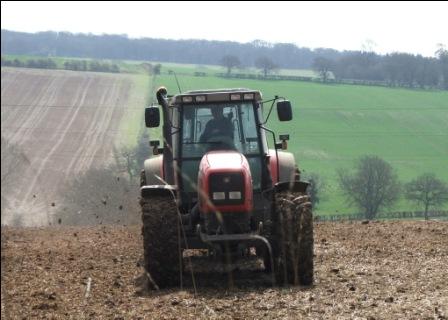Tipperary Farming Contractors have expressed grave concerns regarding new regulations governing the use of agricultural and works vehicles on public roads and feel that these new laws will seriously effect their future incomes.
Details of the Department of Transport and Road Safety Authority‘s new proposals are due to be announced later this week. Contractors understandably now express concerns that these new measures will exclude them from non-agricultural work contracts.
It is understood that a speed limit of just 40kph will be also be introduced for tractors on public roads, with the minimum age for tractor drivers to be increased, while permits will to be introduced for contractors who use farm vehicles that run on rebated fuel for non-agricultural work.
Tom Murphy, director of the Professional Agricultural Contractors (PAC) of Ireland claims:
“The proposed legislation will do serious damage to contractor incomes and the cost of permits, which would allow agricultural contractors to use farm machinery on non-agricultural jobs, such as construction, is likely to be prohibitive. Contractors will go to the wall because of this. There are very few contractors who survive exclusively on farm work. New speed limit will effectively ban tractors from motorways, while the cost of new permits could exclude many contractors from tendering for work with local councils.The proposals, as they are currently framed, deemed the transport of harvested willow as haulage rather than an element of the contractor’s core business. Consequently, contractors will need permits to run their vehicles on rebated fuel if they get involved in this activity.”
The PAC will hold a meeting this week on Thursday at 8pm in the Horse and Jockey, Thurles, Co Tipperary to advise contractors on these new proposed measures.
Farm contractors incomes have already been hit this past year, with the repossession and resale of farm and plant machinery by finance companies, having had serious consequences for established and registered agricultural contractors, with cheap tractors and machinery, bought at repossession sales, enabling new entrants to undercut established operators. Claims that new silage outfits have started up, as a result, which are not registered for tax and who are operating, charging significantly less as a consequence, would appear to be well founded.


Leave a Reply